 Sponsored content
Sponsored content
Curious Films co-founder on being embarrassed in front of Michaela Strachan, how Wife Swap shaped him and the way his company uses AI
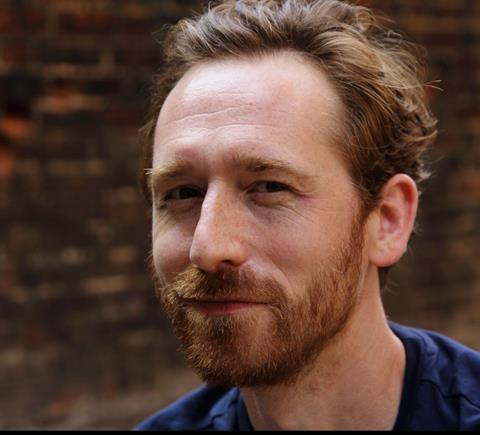
Charlie Russell is the co-founder and creative director of Curious Films, the production company he launched in 2018. A double Bafta and Emmy award-winning filmmaker, Charlie has directed more than 30 documentaries for British television, earning widespread acclaim for his powerful storytelling and distinctive visual style. His work includes the groundbreaking Chris Packham: Asperger’s And Me and Choosing To Die with Sir Terry Pratchett. Continuing to push boundaries in documentary filmmaking, his recent projects include Paula (about the life of Paula Yates), Secrets Of Penthouse (about the rise and fall of Bob Guccione) and Boyzone: No Matter What.

This article features in the Autumn/Winter issue of zoom-in magazine. Click to view the issue here
WHAT GETS YOU OUT OF BED?
My seven-year-old, Gray. He usually comes in for a cuddle and a question about the universe.
WHAT KEEPS YOU AWAKE?
Anxiety over projects, relationships, thinking about where the next commission is coming from.
FAVOURITE TV SHOWS?
I generally prefer making television to watching it but I do view a lot with my 13-year-old son, Luca. We watch Traitors, various Marvel series and old episodes of The Office (US) and The Fast Show.
FIRST RECORD EVER BOUGHT?
I’d like to say it was something cool by Radiohead but the truth is it was a Michaela Strachan record. I had a massive crush on her when I was 12. Years later, I had the privilege of meeting her while working on a documentary about Chris Packham. She had no idea about my pre-teen obsession, and I was mortified.
WHO GAVE YOU YOUR FIRST BREAK?
I was working as a runner for a company called RDF when producer Jo Abel introduced me to a director called Paddy Wivell. He generously lent me his camera, and I started filming my grandmother [Dame Beryl Bainbridge]. About five years later that became my first completed film. I’ll always be grateful to both of them for setting me on my way.
WHAT IS CURIOUS FILMS’ USP?
We go the extra mile when it comes to storytelling and showing genuine compassion for our contributors. Collaboration is at the heart of everything we do, both on camera and behind the scenes. Everyone works together to solve problems and push creative boundaries. We believe that the only way to create great work is for every member of the team – from top to bottom – to be moving in the same direction with equal dedication and passion.
We really like people, and all our documentaries are about the challenges and complexities of people no matter whether they involve ordinary individuals, extraordinary figures or well-known personalities.
HOW DO YOU GAIN SUBJECTS’ TRUST?
I share a lot of myself with the people I’m speaking to about taking part in a documentary. It’s important that they not only understand the process but also get a sense of who I am as a filmmaker. Agreeing to be in a documentary is a huge leap of faith, and you can’t rush that trust. We’re always upfront and honest. We tell people that while we’re strong storytellers, these aren’t our stories – they’re theirs.
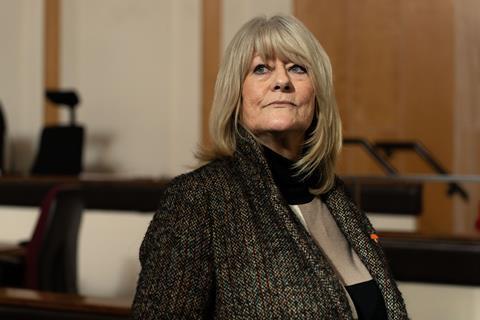
WHAT FILM ARE YOU MOST PROUD OF?
I’m always most proud of the one that’s just been released because it’s most present in my head. Currently it’s Caroline Flack: Search For The Truth for Disney. It’s the best thing we’ve done.
WHAT IS THE FUTURE OF TV?
People will always watch television and, if anything, the amount of content they watch will continue to increase. These things tend to be cyclical. When I first started out, the PD150 camera revolutionised filmmaking. Suddenly, you could put cameras in ordinary people’s homes, and there was a huge boom in reality television. Shows like Wife Swap emerged – this was before the genre became polished. It was all about observational filmmaking and I’m part of a generation that learned how to make those kind of films off the back of that.
At the time, a lot of DoPs [director of photography] found themselves losing work because those smaller cameras meant productions didn’t always need traditional crews. But things come back around. Now if you’re making something for a streamer, everything is expected to be beautifully shot and DoP-led again. Tastes change; they always do. We can’t keep making retrospective documentaries forever.
HOW ARE YOU USING ARTIFICIAL INTELLIGENCE IN YOUR BUSINESS?
Our development team uses it all the time - for research, to generate ideas, to turn things around more quickly… But what AI can’t do is the actual thinking that makes an idea good , or the original perspective that brings that idea to life. I keep coming back to the importance of critical thinking and human experience. People are still absolutely at the heart of everything we do.
I can’t tell you how many times I’ve seen commissioners, lawyers, production managers, directors, producers on a call, all trying to work out the intracacies of how to tell a story, when to contact a contributor or how to navigate a sensitive situation. The collective experience is something AI can never replicate.
WHAT ADVICE WOULD YOU GIVE SOMEONE STARTING IN TELEVISION?
Don’t overthink it. If you want to be a filmmaker, don’t wait for someone to pay you. Just make something yourself. All you need is a phone and laptop. Shoot it, edit it, make a film. Show it to me and maybe I’ll give you a job.
ANY TV-RELATED LEGAL PICKLES?
I don’t think we make anything that isn’t difficult, contentious or incredibly sensitive in some way. Because of that, we work closely with UK and US counsel - we couldn’t do what we do without them. Our aim is always to push the boundaries of what’s possible while protecting the people we work with and those appear in our films.
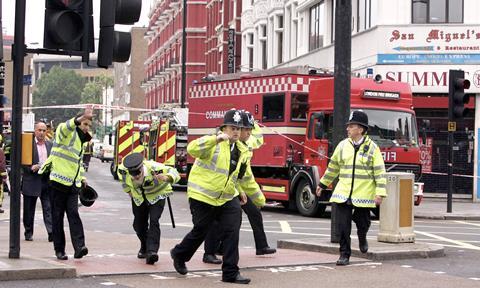
We made a series called Shoot To Kill which featured the firearms officer involved in the tragic shooting of Jean Charles de Menezes. We had to be extremely careful to ensure he wasn’t breaching the Official Secrets Act in speaking with us, and that nothing we broadcast crossed legal lines.
That meant the project went through an intense level of legal scrutiny - both from our lawyers and from Channel 4’s legal team. Thankfully, everything was cleared, and the series aired without incident. But it illustrates how high the stakes are when you’re trying to tell stories that have never been told before.
WHO WOULD YOU LEAST LIKE TO GET STUCK IN A LIFT WITH?
I’m naturally inquisitive and love talking to people, so I’d be happy spending time with anyone - regardless of their political views or perspective.
IF YOU COULD RETIRE TOMORROW, WHAT WOULD YOU DO?
I’d live in a small Greek village and paint.
WHEN WAS THE LAST TIME YOU CRIED?
At the press screening for our Caroline Flack series. I was sitting next to Caroline’s best friend, Mollie, and we were both in tears. I met Caroline before she took her life, and we’d wanted to make a documentary about what she was going through but weren’t able to do it at the time. This series is our way of giving her that voice back. I’m incredibly proud of Mollie, everyone in the film, and particularly Caroline’s mum, Chris, who led the series.
WHAT ARE YOU WORKING ON NOW?
I’m currently overseeing a new BBC series with Professor Hannah Fry call AI Confidential. The series explores the rapidly evolving world of artificial intelligence and uncovers what the AI revolution really means for all of us.
Curious Films’ Caroline Flack: Search For The Truth is available now on Disney+. AI Confidential is due for transmission on the BBC in spring 2026. To learn more about Curious Films, visit curiousfilms.com


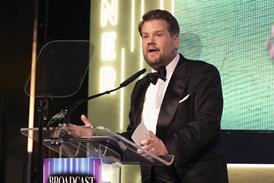
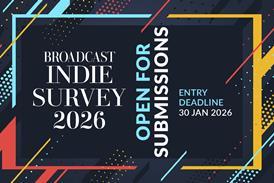



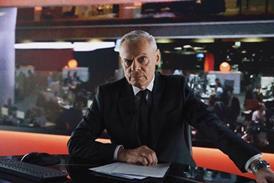
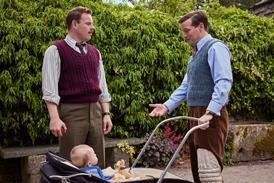

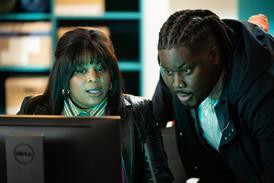
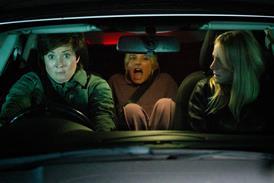













No comments yet